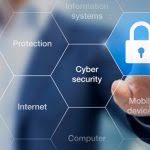Learning from the University of Winnipeg Cyberattack a Wake-Up Call for Cybersecurity Awareness and Credit Monitoring.
As the University of Winnipeg concludes its investigation into the recent cyberattack that shook its digital infrastructure, the incident stands as a crucial reminder of the growing importance of cybersecurity for individuals and institutions alike. The breach not only disrupted academic operations but also raised serious questions about data safety and privacy. Experts say it’s a wake-up call for all of us to proactively manage our digital footprints, particularly by regularly monitoring our credit information.
Understanding the Cyberattack
In recent weeks, the University of Winnipeg confirmed a cyberattack that prompted the institution to take swift action. While details surrounding the attack are still unfolding, preliminary reports indicated that sensitive data may have been compromised. This has significant implications, not only for students and staff but also for their families and the wider community. When such breaches occur, the repercussions can last long after the initial incident, leading to identity theft, financial fraud, and a loss of trust in the institution involved.
The Ripple Effect of Cyberattacks
Beyond the immediate chaos of IT shutdowns and data recovery, cyberattacks create a ripple effect that extends to individuals whose information may be exposed. In the case of the U of W cyberattack, students, faculty, and staff may find their personal details in jeopardy. This situation can lead to unauthorized access to financial accounts, fraudulent applications for credit, and lasting damage to one’s credit score all resulting in a heavy emotional and financial toll.
Importance of Monitoring Your Credit
In light of such alarming incidents, experts stress the importance of regularly checking your credit information. Here’s why it matters:
- Early Detection: Regularly reviewing your credit report can help you spot any irregularities or unauthorized activity early on. The sooner you catch something suspicious, the better your chances of mitigating damage.
- Identity Theft Protection: Identity thieves can use your personal information to create accounts in your name. Monitoring your credit can help you identify these acts more quickly, allowing you to take action before significant damage occurs.
- Maintaining Financial Health: Keeping an eye on your credit report can help you understand your financial standing, allowing you to take steps to improve your credit score if necessary, which is essential for securing loans and other financial services.
- Staying Informed: Knowing what’s on your credit report can give you peace of mind and ensure you are fully informed about your financial situation. Awareness is empowering, especially in a world where cyber threats are becoming increasingly sophisticated.
Practical Steps to Protect Yourself
Here are some practical steps you can take to enhance your cybersecurity practices and protect your credit information following incidents like the U of W cyberattack:
- Enroll in Credit Monitoring Services: Many financial institutions and third-party services offer credit monitoring. These services alert you to significant changes in your credit report, helping to prevent fraud.
- Utilize Free Annual Credit Reports: In many countries, you are entitled to free annual credit reports from major credit bureaus. Take advantage of this to check for inconsistencies or unfamiliar accounts.
- Strengthen Your Passwords: Use unique, complex passwords for different accounts, and consider enabling two-factor authentication to add an extra layer of security.
- Be Cautious with Personal Information: Be mindful of sharing sensitive information, especially on social media or unsecured websites.
- Update Security Software Regularly: Make sure you have up-to-date antivirus software, firewalls, and other security tools to protect against malware and phishing attacks.
Conclusion
The cyberattack at the University of Winnipeg serves as a stark reminder of the vulnerabilities that exist in our increasingly digital world. As we move forward, it’s imperative that we all take proactive measures to protect ourselves starting with regularly monitoring our credit information. Knowledge is indeed power, and in an era where personal data is often the currency of cybercriminals, we must remain vigilant in safeguarding our identities and financial wellbeing. By learning from incidents like these, we can collectively work toward a safer digital environment for everyone.







